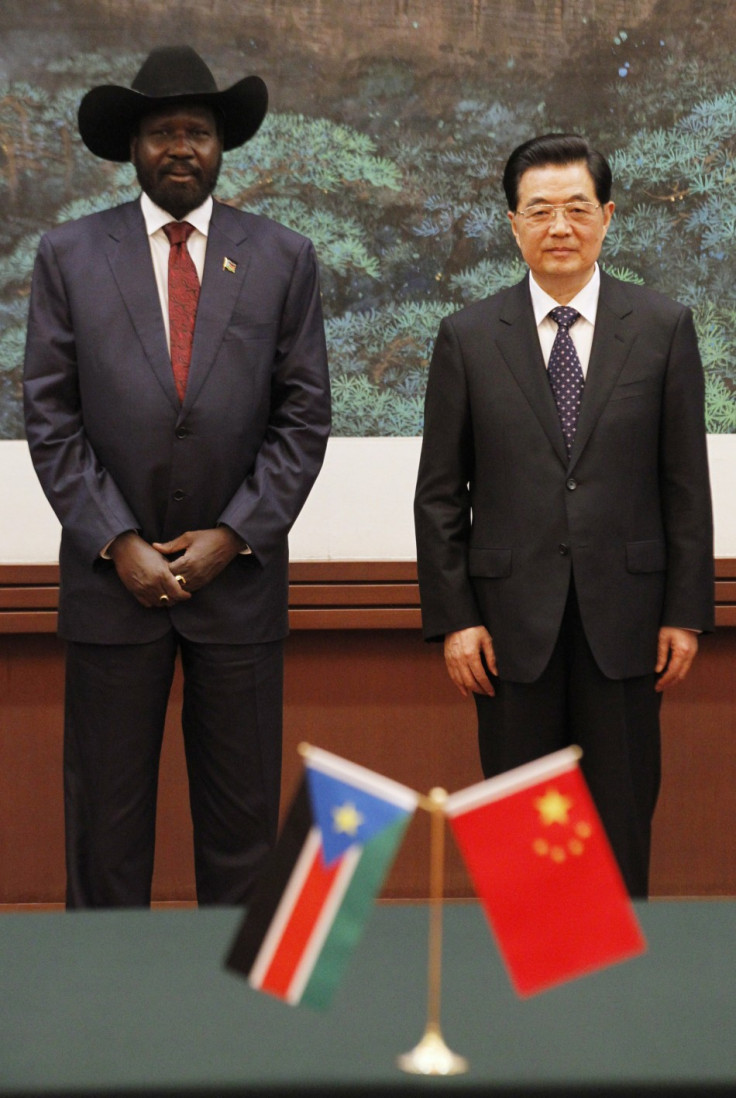China Gives South Sudanese President Red Carpet Treatment

It was an amusing image: the tall African in the oversized cowboy hat and the short Chinese man with the oversized glasses, and behind the two of them, a painting done in the traditional style of Chinese mountains and spruces. The taller man is the president of the young hopeful nation of South Sudan, Salva Kiir Mayardit. The shorter gentleman he was toasting, Hu Jintao, is the president of China, a country which may now wield unparalleled political and economic influence over both Sudans, on the brink of war after the South split in July of last year.
The South Sudanese president has been in China since Tuesday in order to court Chinese officials, and economic assistance. Whether he sought out a harsher stance from China against his enemies in the north is anyone's guess.
As conflict between Khartoum and Juba intensifies, Beijing may remain wary of close involvement and of appearing to be partial to any one party. Yet it is undoubtedly concerned about the key connections between its economy and the region's oil.
Before South Sudan declared independence, Sudan was variously rated by international groups as China's second-largest African source of oil. More than 60% of Sudanese oil went to China in 2009.
That makes China National Petroleum Corporation, which recently surpassed Exxon in barrels of oil produced annually, a major stakeholder in the region's economy. Sudanese petroleum exports went from around 60,000 barrels a day in 1999 to around 500,000 barrels in 2006, according to the U.S. Energy Information Association; much of this was due to investment and assistance from Chinese companies.
China's oil concessions are now mostly located in South Sudan. After South Sudan officially split off, it carried with it about four-fifths of the country's petroleum production capacity, though no oil is currently being pumped out of the southern fields. Major transit for oil exports remained controlled by Khartoum, through Port Sudan on the Red Sea.
If Beijing is wary of looking to favor South Sudan, it certainly didn't hesitate to give President Kiir the red carpet treatment. Kiir not only met with Hu, but also with Wu Bangguo, head of China's National People's Congress as well as the country's second-highest ranking Communist party official. Kiir was also greeted by Dai Bingguo, a state councilor and a prominent figure in Chinese foreign policy.
Hu promised support for the South's economic development and "efforts to merge into international society."
The Chinese president expressed hopes of "long-term development between the two nations to strengthen cooperation cultural, educational, skills training, and sanitation-related areas."
Yet, the prospects for that long-term stability would be increasingly challenged if the conflict expands. Meanwhile, after the African Union gave the two countries an ultimatum to resolve their territorial disputes, Uganda has noted that it would back the South in any conflict between it and Khartoum.
© Copyright IBTimes 2025. All rights reserved.





















